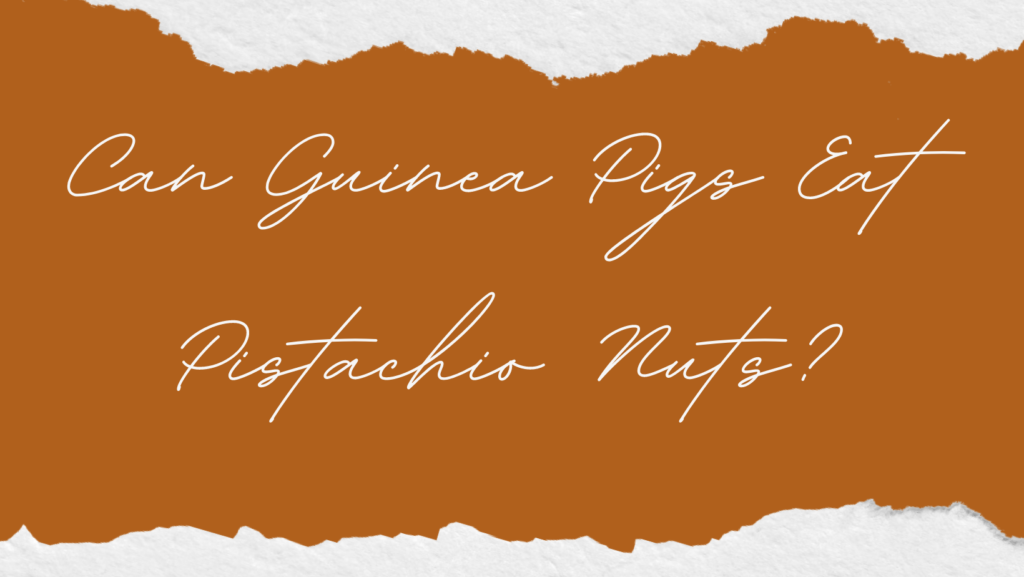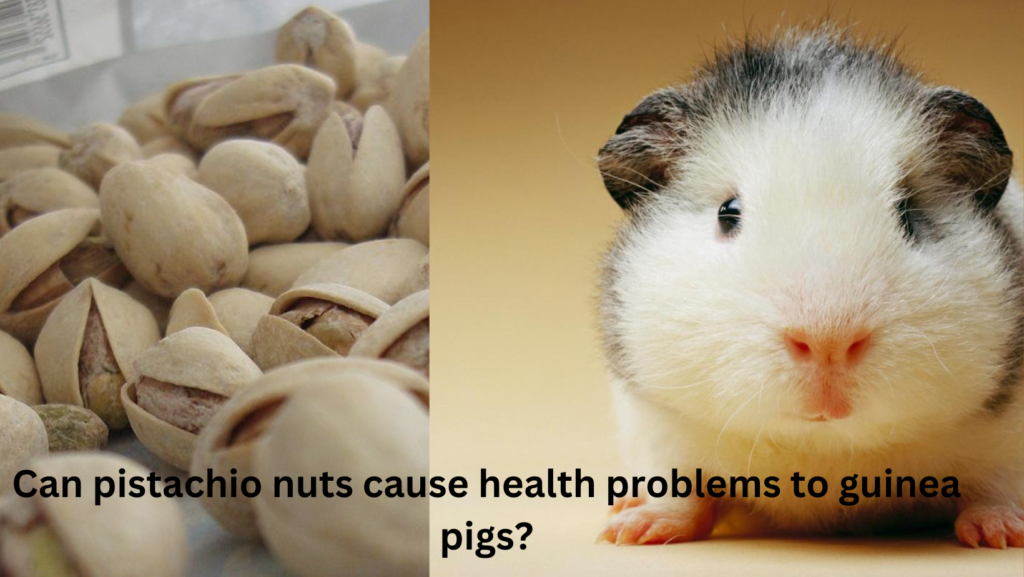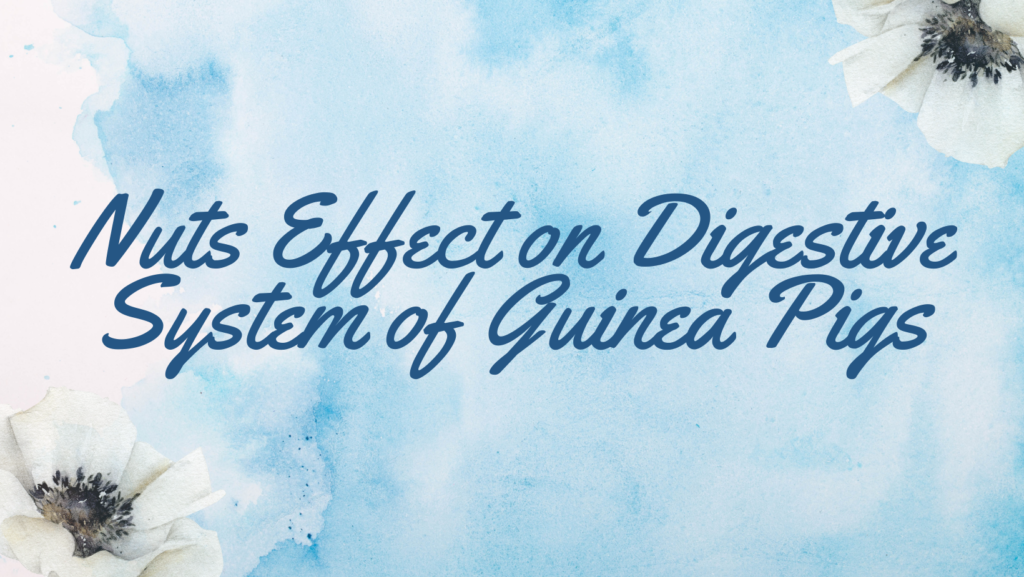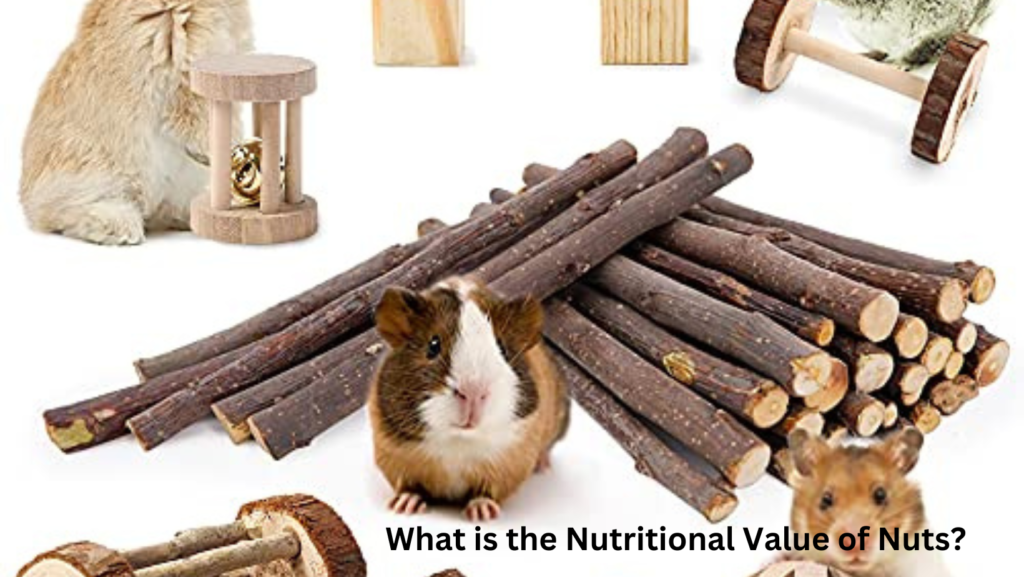As a pet owner, one of the most rewarding yet challenging aspects of caring for your furry friend is ensuring they receive a nutritious and safe diet. Among the many questions that arise is whether certain human foods can be shared with our beloved pets, particularly when it comes to treats.
One such food that often comes to mind is pistachio nuts. Known for their distinctive flavor and crunchy texture, these nuts may seem like an enticing snack for your guinea pig. However, before you share these nutty delights with your small companion, it’s essential to understand their dietary needs and the potential risks involved.

In this article, we will explore whether guinea pigs can eat pistachio nuts and examine the impact of such treats on their overall health.
Can Guinea Pigs Eat Pistachio Nuts?
Guinea pigs are known for their specific dietary needs, and as a responsible pet owner, it’s crucial to understand what foods are safe for them. When it comes to pistachio nuts, the answer is straightforward: no, guinea pigs should not eat pistachio nuts.
Why Pistachio Nuts Are Not Suitable
- High Fat Content: Pistachios, like many nuts, are high in fat. While some fat is essential in a guinea pig’s diet, excessive fat can lead to obesity, heart disease, and other health issues.
- Presence of Salt: Often, pistachio nuts are sold salted, which can be harmful to guinea pigs. Salt is detrimental to their health and can lead to conditions such as kidney dysfunction and dehydration.
- Digestive Concerns: Guinea pigs have sensitive digestive systems that are not equipped to handle high-fat or processed foods. Consuming nuts can lead to gastrointestinal distress, including bloating and diarrhea.
Safe Treat Alternatives
If you’re looking to treat your guinea pig, consider safer options that align more closely with their dietary requirements:
- Fresh Vegetables: Leafy greens like spinach, kale, or romaine lettuce are great choices.
- Fruits: Small amounts of fruits such as apples, strawberries, or blueberries can provide a nice treat while being easier on their digestive system.
- Hay: Unlimited hay is essential for their diet, providing necessary fiber that aids in digestion and helps prevent dental issues.
Can Pistachio Nuts Cause Health Problems To Guinea Pigs?
There is some evidence to suggest that pistachio nuts can cause health problems in guinea pigs. One study found that when pistachio nuts were given to guinea pigs, they developed kidney and liver damage.
Another study found that pistachio nuts can also cause gastrointestinal problems in guinea pigs, including diarrhea and vomiting.
If you are considering giving your guinea pig pistachio nuts, it is best to speak to a veterinarian first to see if it is safe for your pet.

Nuts Effect on the Digestive System of Guinea Pigs
Guinea pigs are unique creatures in that their digestive system is very sensitive. As a result, they can have issues with certain foods that other animals can eat without issue. Nuts are one of the foods that can cause problems for guinea pigs, and it is important to be aware of this if you are considering feeding them to your pet.
Nuts can cause problems for guinea pigs because they are high in fat and fiber. This combination can lead to digestive issues, including gas, bloating, and diarrhea. Additionally, the high-fat content of nuts can lead to obesity in guinea pigs, which can further exacerbate digestive problems.

If you do decide to feed your guinea pig nuts, it is important to do so in moderation and to monitor their reaction to ensure that they are able to tolerate them without issue.
Are Nuts At All Beneficial for Guinea Pigs?
Guinea pigs are often thought of as small, cuddly creatures that make great pets. However, many people are unaware that these animals have specific dietary needs and that feeding them the wrong foods can actually be harmful. One common question that arises is whether or not nuts are beneficial for guinea pigs.
While some nuts, such as peanuts, can be part of a healthy diet for guinea pigs, others, such as almonds and walnuts, should be avoided. The reason for this is that these nuts contain high levels of fat and phosphorus, which can be detrimental to the health of guinea pigs. In addition, nuts can also be a choking hazard for these animals.
Overall, it is best to err on the side of caution and avoid feeding nuts to guinea pigs. If you are unsure about what foods are safe for your pet, consult with a veterinarian or other animal expert.
Risks to Consider When Feeding Nuts to Guinea Pigs
When feeding your guinea pig nuts, there are a few risks to consider. Nuts are high in fat and calories, which can lead to obesity and other health problems in guinea pigs. Additionally, nuts can be a choking hazard, so be sure to chop them up into small pieces before feeding them to your guinea pig.
Also, be aware that some nuts, like walnuts, contain toxins that can be harmful to guinea pigs. So, it’s best to avoid feeding your guinea pig nuts altogether.
What is the Nutritional Value of Nuts?
Nuts are an excellent source of nutrition, providing a range of essential nutrients like protein, fat, vitamins, and minerals. They are also a good source of fiber, which can help to keep you feeling full and satisfied after eating. Additionally, nuts are a natural source of antioxidants, which can help to protect your cells from damage.

There are many different types of nuts, each with its own unique nutritional profile. For example, almonds are a good source of magnesium, while Brazil nuts are an excellent source of selenium. Walnuts are a particularly good source of omega-3 fatty acids, which are beneficial for heart health. No matter which type of nut you choose, they are all a nutritious addition to your diet.
Read More:
Final Word
In conclusion, guinea pigs should not eat pistachio nuts. While these nuts may seem like a tasty treat for humans, their high fat and salt content can pose serious health risks for our small companions. Additionally, guinea pigs have sensitive digestive systems that may react poorly to foods that are not suited for them, leading to gastrointestinal issues.
To ensure the well-being of your guinea pig, it’s best to stick to their natural diet, which includes unlimited hay, fresh leafy vegetables, and limited safe fruits. Always prioritize their health by consulting with a veterinarian if you’re unsure about any food item. Educating ourselves on appropriate dietary choices is vital to keeping our guinea pigs happy and healthy!

